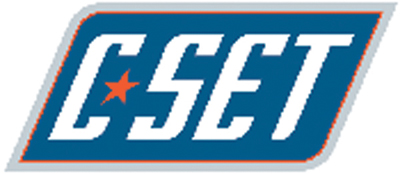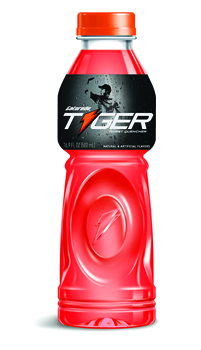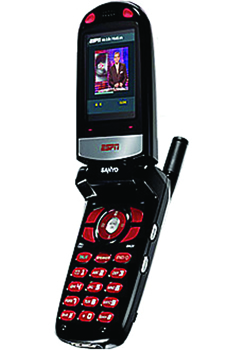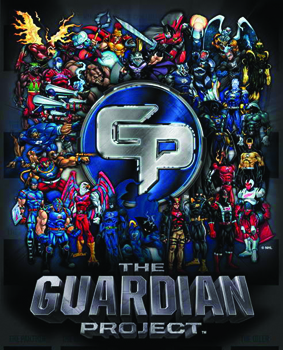 BOBCATS SHUTTER C-SET (2005)
BOBCATS SHUTTER C-SET (2005)
New Charlotte Bobcats owner Robert Johnson may have been ahead of his time in starting the regional sports network C-SET for his expansion team, but the move limited his franchise’s exposure when it desperately needed it. The network was available to only 40 percent of local Time Warner Cable customers and posted overall losses of $15 million. Johnson shut down C-SET after just one season.
 FORGET, DON’T REMEMBER, 1836 (2006)
FORGET, DON’T REMEMBER, 1836 (2006)
When the MLS club moved from San Jose, team officials decided a rebrand was in order, and dubbed the team the Houston 1836 to signify the year the city was founded. However, the move angered some Hispanics, because 1836 also was the year Texas gained its independence from Mexico. The team never played under the 1836 moniker, eventually settling on Dynamo.
 “DESPERATE” OPENING (2004)
“DESPERATE” OPENING (2004)
ABC rolled out an aggressive “MNF” intro that pushed its sex-fueled hit, “Desperate Housewives,” as actress Nicollette Sheridan attempted to seduce Eagles wide receiver Terrell Owens. The league fumed. Steelers Chairman Dan Rooney called the lead-in worse than Janet Jackson’s Super Bowl halftime act, and Colts coach Tony Dungy called it “racially offensive.”
 NBA ALL-STAR HITS SIN CITY (2007)
NBA ALL-STAR HITS SIN CITY (2007)
The NBA’s one-and-done trip to Sin City for All-Star Weekend is one the league may wish to forget. The weekend was marked by massive traffic and discord. Although no players were involved, Las Vegas police made 392 game-related arrests during the four-day event.
 SPALDING’S NEW NBA BALL A MISS (2006)
SPALDING’S NEW NBA BALL A MISS (2006)
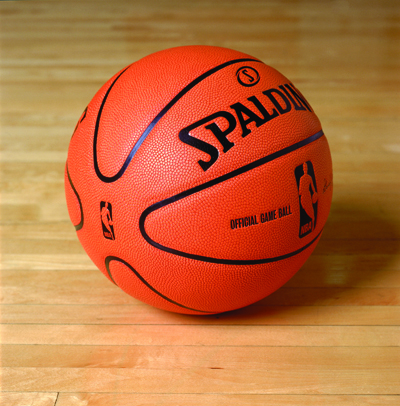 |
Photo by: NBAE / GETTY IMAGES
|
Spalding’s much-hyped synthetic basketball lasted just two months into the 2006-07 NBA season before being shelved for its leather predecessor. The league didn’t consult with players before production and faced leaguewide complaints about handling. Spalding was also forced to offer $100 refunds on its website to fans who had purchased the ball.
 GET YOUR LAP DANCES! (2011)
GET YOUR LAP DANCES! (2011)
Halftime acts at various sporting events run the gamut from entertaining to bizarre. But the National Lacrosse League’s Boston Blazers took a different path with a promotion during an indoor lacrosse game. A game at TD Garden featured scantily clad dancers in a competition to see who could give the team mascot the best lap dance. The team eventually issued an apology.
 THE MAGIC HOUR (1998)
THE MAGIC HOUR (1998)
Magic Johnson’s eight-week run at late night TV in 1998 was a disaster. USA Today’s Robert Bianco wrote that Johnson lacked “the most rudimentary talk-show talents — such as an ability to ask questions and listen to answers without convincing us both were scripted.” The Orlando Sentinel’s Hal Boedeker called Johnson “inept, fawning and dull.” Ratings were poor and the show was quickly canceled.
 USOC EYES A NETWORK (2008)
USOC EYES A NETWORK (2008)
The U.S. Olympic Committee announced it was ready to launch its own cable TV network dedicated to Olympic sports. But the group didn’t get the necessary support from the International Olympic Committee and TV partner NBC before the announcement, and with pushback from both organizations putting Chicago’s bid for the 2016 Olympics in jeopardy, USOC Chairman Larry Probst pulled the plug.
 GATORADE MISSES ON TIGER (2007)
GATORADE MISSES ON TIGER (2007)
It was an agreement Gatorade called its first licensing deal, with Tiger Woods getting a reported $100 million over five years to be the first athlete with his face on the sports drink. The “Gatorade Tiger” sub-brand launched in March 2008 with three flavors, but it never gained traction and the relationship ended shortly after Woods’ personal life became embroiled in scandal.
 “SPIDER-MAN 2” OFF BASE (2004)
“SPIDER-MAN 2” OFF BASE (2004)
Messing with the purity of the national pastime typically does not go over well with its traditionalist fan base, and that proved especially true in 2004. MLB announced a deal with Columbia Pictures to put a 6-by-6-inch logo of “Spider-Man 2” on first, second and third base during three days of games to promote the heavily hyped movie. But backlash was so swift, MLB quickly altered the promotion and took the logos off the bases.
 MOBILE ESPN GRAND EXPERIMENT (2006)
MOBILE ESPN GRAND EXPERIMENT (2006)
ESPN developed its own mobile phone in 2006 through an agreement with Sprint that it subtly dubbed “The greatest invention in the history of the world. Ever.” But ESPN found that being in the hardware business was a challenge. The service did not last a year, with ESPN shutting it down after a $150 million investment. Fewer than six months later, Apple introduced the iPhone.
 NIKE BETS ON DUVAL (2001)
NIKE BETS ON DUVAL (2001)
Nike saw a rising star in David Duval, who had 13 PGA Tour wins before his 30th birthday, and signed him to a lucrative 10-year deal. Duval won the 2001 British Open, which was the first major won by a player using Nike clubs. But the belief that it had golf’s next star faded quickly as Duval disappeared from the pro golf landscape. He has now gone without a tournament win dating to the 2001 season.
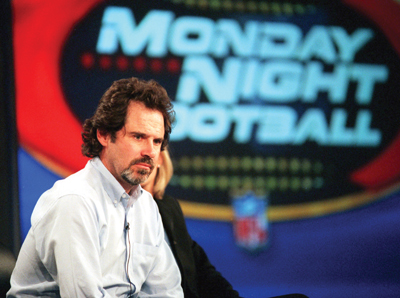 |
Photo by: AP IMAGES
|
 DENNIS MILLER HITS “MNF” (2000-02)
DENNIS MILLER HITS “MNF” (2000-02)
After posting its lowest-rated season in 1999, ABC’s “Monday Night Football” went in a bold direction and hired Miller in an attempt to revive audience numbers. Although it yielded some memorable quotes, Miller’s tenure lasted only two seasons, as he and fellow analyst Dan Fouts never formed chemistry and were replaced by hall of famer John Madden.
 NFL PULLS OUT OF CHINA BOWL (2007)
NFL PULLS OUT OF CHINA BOWL (2007)
It seemed like a solid concept — two marquee NFL teams heading to one of the most populous cities on the planet for a preseason game just one year before that city hosted the 2008 Summer Games. But quicker than the Patriots and Seahawks could say Beijing, the NFL pulled the plug over operational, business and logistical failures. It has never announced another game for the country.
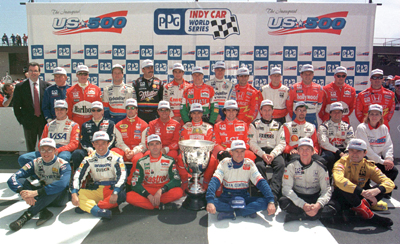 |
Photo by: GETTY IMAGES
|
 CART U.S. 500 (1996)
CART U.S. 500 (1996)
After the split with Tony George’s IndyCar Series, CART decided to stage an alternative to the “Greatest Spectacle In Racing,” but the effort did not last long. The race at Michigan International Speedway ran opposite the Indianapolis 500 just once, in 1996, before being moved to a July date in 1997 where it ran until 1999.
 THE LEGACY OF FOXTRAX (1996)
THE LEGACY OF FOXTRAX (1996)
David Hill and company at Fox introduced a glowing puck for its coverage of the NHL as a way to help viewers follow the action. But purists, especially in Canada, voiced their displeasure and Fox dropped the effort. Ahead of their time or just the wrong sport to execute it around, the FoxTrax name has survived and adorns on-screen graphics on the network’s MLB and NASCAR telecasts.
 THE NHL’S GUARDIAN PROJECT (2011)
THE NHL’S GUARDIAN PROJECT (2011)
The NHL partnered with comic book legend Stan Lee for “The Guardian Project” to create a group of superheroes based on NHL teams. What started out as a way to attract young, casual fans never got going before the partnership ended. Yahoo Sports’ Greg Wyshynski dubbed the project one of the league’s “most misguided, derided and ridiculed duds.”
 MJ AND GOLF? A DREAM BUSINESS (1995)
MJ AND GOLF? A DREAM BUSINESS (1995)
One concept that seemed like a natural was the Michael Jordan Golf Co., formed in late 1993. Combining Jordan’s name, his love of golf and a burgeoning sport, it looked like a winner. But plans for the national instructional centers and retail shops never materialized, and the company was folded into AMF Bowling once that company signed Jordan as an endorser. AMF dissolved its partnership in the golf entity in 2002.
 MASTER P’S ONE SHOT (1999)
MASTER P’S ONE SHOT (1999)
Rapper Master P’s sports agency — No Limit Sports — scored its biggest client in Saints running back Ricky Williams. The rapper-turned-agent then negotiated the playing contract for the fifth overall pick in the 1999 NFL draft. However, the deal ended up being quite unusual, with Williams to collect only the league minimum each season and having to hit several marks to collect incentive bonuses. It came as no surprise when Williams and Master P parted ways and eventually settled an ugly civil lawsuit.
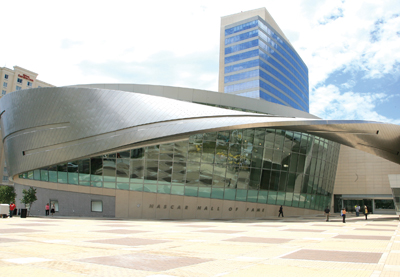 |
Photo by: JIM FLUHARTY
|
 PASSING ON THE HALL (2010)
PASSING ON THE HALL (2010)
NASCAR was a late comer to establishing its hall of fame, but it went through a rigorous bid process before getting a lucrative deal to put it in Charlotte, home to just about every race shop in NASCAR and a local speedway with three annual race weekends. But like other halls of fame in this information age, it has found drawing an audience — and balancing the books — challenging.


